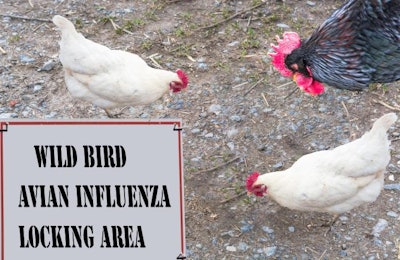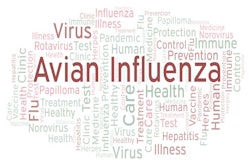
Two additional findings of highly pathogenic avian influenza (HPAI) in have been confirmed in wild birds, following the confirmation of the United States’ first HPAI case of 2022, which was announced on January 14 by the U.S. Department of Agriculture (USDA) Animal and Plant Health Inspection Service.
The two new cases to be reported are in Colleton County, South Carolina – the same county where the original case was confirmed – and Hyde County, North Carolina.
The two new cases were announced on January 18 by APHIS both in the form of a press release, and through a webinar hosted by APHIS and cooperating agencies.
Dr. Donna Lalli, associate deputy administrator, APHIS Wildlife Services, said during the webinar that all three wild birds were hunter-harvested birds, but they were different species of birds. The initial one was an American wigeon. The second positive case in Colleton County was a blue-wing teal, and the positive case in North Carolina was a northern shoveler.
All three birds were gathered through a surveillance program being conducted by APHIS, and in all three cases the birds appeared to be healthy at the time of harvest, said Lalli.
Dr. Rosemary Sifford, APHIS chief veterinary officer, said during the webinar that as the surveillance program was carried out, these findings were “not unexpected.”
“We have anticipated these types of findings. We also anticipate that we may have additional findings in wild birds as we continue our sampling into the spring,” said Sifford.
Because of the high likelihood that other infected wild birds are out there, Sifford urged both commercial and backyard poultry producers to make sure that strong biosecurity practices are in place.
Surveillance to continue
According to Lalli, the wild bird surveillance process began in June 2021 and is expected to run through March. APHIS plans to collect and screen over 16,000 samples from 25 states, and to date, the agency collected over 12,000 samples, and surveillance is ongoing at this point.
Lalli added that APHIS is taking actions in response to not only the three confirmed cases in the United States, but also the recent confirmed cases of HPAI in Canada.
“We are maximizing our sample collection in targeted watersheds in both Atlantic and Pacific flyways. We’re going to continue coordination and information sharing with state, national and global wildlife partners, and increasing vigilance for wild bird morbidity and mortality. We’re also looking into other … surveillance opportunities.
Because of the high likelihood that other infected wild birds are out there, Sifford urged both commercial and backyard poultry producers to make sure that strong biosecurity practices are in place.
View our continuing coverage of the global avian influenza situation.

















